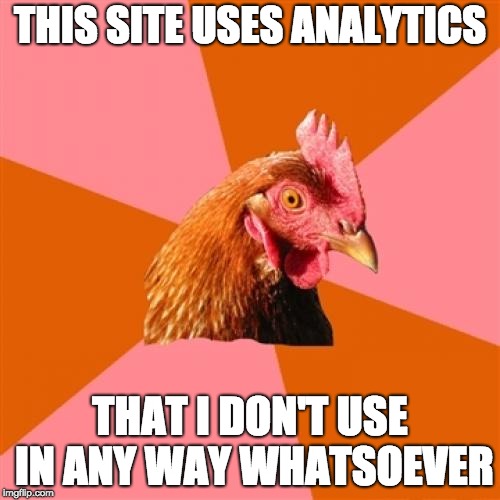After reading this great essay by writer and new first-time parent Brian McGuigan, who composed it in response to this great essay by writer and non-parent Emelia Symington Fedy, I got to thinking and decided I'd weigh in as Experienced Parent. In the kiddie-raising game for a couple of decades now, I'm kind of blown away that I now know parents ranging in age from their upper 60s to their late 20s, because I had such wide age gaps between my own kids, who are 20, 14, and 9. I've seen babies grow to adults, and seen the pattern that happens over and over when that first baby arrives and inevitable Infant Life Takeover happens. As the two essays above note, this transition also brings with it some loss and misunderstanding, that surprisingly isn't addressed very much or very well, and really should be.
There really isn't a more intense, bizarre, and beautifully heart-expanding experience than making, baking, birthing, greeting, and then getting to know and take care of your own super-cute and often very loud human being. There's also little that is more incredibly boring to an outsider than the new parent all soaked up in love and diapers, slightly mental from sleep deprivation and distraction. Friendships of even long-standing regularly implode during this time, with anger and sadness on both sides. The friend who hasn't had kids yet and maybe does not ever want any, is beyond frustrated and annoyed by the baby hyper-focus of their formally-normal pal, the person who used to be able to go out and have some drinks and dinner with adult conversation, the person who could listen without having 90% of their auditory resources allotted to a Fisher-Price baby monitor, the person who made time to maintain a balanced friendship. On the other side, the new parent is overwhelmed with the seriousness of their new responsibilities and the impossibility of getting everything that needs doing done when every minute of every day is dictated by King or Queen Baby. The exhaustion is profound, the learning curve steep, and the loneliness, isolation, and boredom that is also part of infant care can be very difficult to deal with. The new parent needs to be "normal," too, but it takes time to figure out what that new normal is going to be, because as it's said, everything changes.
And so over and over I've seen it. The friendship camps divide into those people With Kids and those people Without Kids. New parents lose old friends and make their new ones through baby playgroups, then their kids' schools and activities. The friends who don't have children either wait it out for years on the sidelines until seeing their parent-friends doesn't require the cost and logistics of sitters or they gravitate to Adult Adults, who don't have to answer to any little human at all and are able to discuss things that aren't on Nick Jr. Judgment is made, often unsaid of course, labeling the child-free friend as self-centered, impatient, and immature, and the new parent as over-absorbed, inflexible, and dull.
What's the answer? Although we don't need as many as we have now, we do need folks to keep having some kids, and you may totally rely that they will, by choice or accident. We also need to celebrate those people who know that parenthood is not for them, and make the responsible choice to stay out of the game. How do we get everyone to understand each other a little better, to not have so many friendships fade away forever over a baby? Maybe it just takes awareness of the whole process.
Nature, being a big Bitch, hands us newborns that are far less suited to life outside the womb than other species' new spawn. They need constant help and care to survive and thrive. Believe me, society wants to see new parents crazy in love with their babies, for the alternative doesn't bode well at all for the infant. The intensity of those days has a vital, real purpose in physical and emotional health for little Argon or Kardashina, but it's total boot camp for new parents, and pushes boundaries and buttons hard. Instinct delivers them a Mama or Papa Tiger protective response, a fierce, super-human call to keep this little squawk ball alive, but does nothing to address the frightening sense of vulnerability that you now own for life, nor the sense that you might be drowning yourself in the process of giving so much to something that has endless needs, lost in the smallest. The new parent is spinning 100 plates on tall, wobbly sticks, dropping more than a few, and to a large degree just has to accept all of this as part of the incredible privilege (for that is truly what it is) of helping another human being grow up and bring their unique stamp to the world. The child-free friend has to realize they aren't getting shut out purposefully and to not take it personally that Parent Pal is so very preoccupied.
That said, new parents also need to be aware of the fact that there is much to be gained by making the mega-super-human effort to try to do non-baby-centric things, too. I wish I had done more of that myself over those long years of breastfeeding and food mashing and diaper pail disinfecting and hanging out with some other parents whom I had absolutely nothing in common with other than we bred at about the same time. In the desire to do everything right by Baby, I ended up not always doing right by myself or my old friends, and that can really add up. I was so fortunate, though, to at times have steady and kind help from my mom and Nanny Sherry (when I needed thinking space and time to finish college) and Nanny Ginger (who pitched in and did anything from driving to cooking to baby care to helping with homework so I didn't have to spin more plates than I had at all available). You've probably read how "Date Night" is a really good practice to maintain the health of your romantic relationship; "Friend Night" might be just as important. If you can do it, DO IT. And also read a book that isn't about BABIES for at least 10 minutes a day. Get a Mom or a Sherry or a Ginger or your partner in Baby Making or a patient Other Friend and ask for help so you can Adult every so often. You can and should do this, says your Parent Friend Me from your distant future.
If we are aware of the pressures and concerns of both sides, with honest communication and real effort I think it's possible to salvage some of these adult friendships before they fade into the sadly-recalled past. For both the parent and the non-parent, I ask: do you love your friend? If you do and want them to remain part of your life, empathize, adjust, re-adjust, and work that much harder to help him or her be a friend to you. It will be different, sure, but it doesn't have to be over. McGuigan and Symington Fedy know this already; now you do, too. Go forth, multiply or not, and keep your world big...and kind-hearted.
TO BE LOST IN THE SMALLEST: HELLO BABY, GOODBYE FRIENDS
Friday, June 08, 2012




